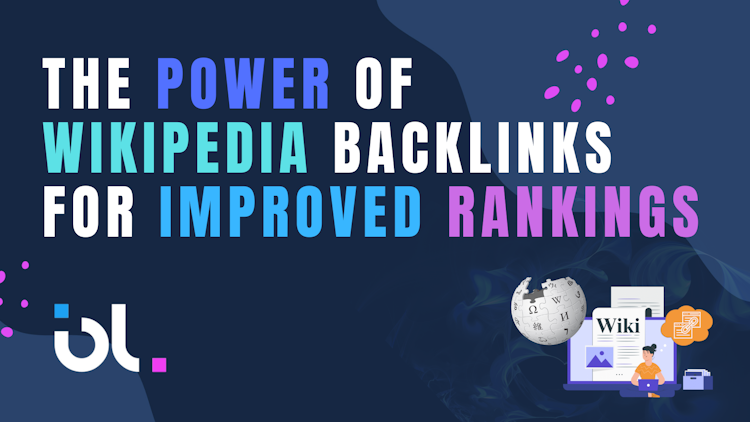If you use techniques such as these, you can put your brand-new blog in a position to fail even before it has been released to the public. It is possible that this information would come as a shock to you, yet 90.63 percent of all newly published content receives no search traffic from Google.
Length of Blog Posts, Simplified
Our general rule for blog length is that each post should be as long as necessary. If a specific quantity helps, we’ve found that 1,555 words strikes a good balance between reader comfort and search engine optimization. That, however, is only a rough outline. There are many unknowns that might cause this recommendation to change.
Before we get into the more in-depth aspects of blog word count, here are a few additional pointers to keep in mind.
- Concentrate on the story you’re trying to share.
- Don’t try to fit more words into your content just to get there.
- Don’t overedit, attempting to fit within a set word count.
- Each blog article should fit like a well-loved hoodie.
How to Choose the Right Blog Post Length
There are a number of considerations that go into determining the optimal length of a blog article. Let’s break down how each of these aspects contributes to the overall length of a blog post.
1. Comprehend your end objective
Creators of content don’t simply start writing for no reason. Each and every blog article was conceived after careful deliberation and was written with a specific plan in mind. The first thing you need to do is grasp why you should be creating a blog. There are several uses for blog postings, including:
- Improving Position in SEO
- Increasing audience size via social media
- Increasing the number of sales leads and conversions
- Introducing brand new merchandise
2. Determine your target audience
Every single group of people in the audience is unique. When deciding the length of a blog post, it is essential to have a solid grasp of the readers you want to attract. You will need to adjust the length of the blog post depending on whether you are writing for novices, professionals, or a specific buyer persona.
3. Concentrate on SEO
Each and every post on a blog is prepared with a certain objective in mind, and similarly, each piece of content should conform to the requirements of its own search objective. The ranking of the content takes into account a number of different elements in addition to the length of the blog articles. The structure of blog posts, the overall tone of the site, and several other aspects, such as graphics and so on, are the primary objectives of SEO.
What is the Optimal Length for a Blog Post?
As a result of being inundated with information on the internet, current users have developed the ability to pick and choose what they read, often focusing on material that is directly pertinent to them. It is essential to have a good understanding of the requirements of your reader and to deliver the appropriate quantity of information.
The length of a blog post should ideally fall between 1,500 and 2,500 words. However, this does not always imply that you should always choose to publish lengthy pieces. If you can address the queries of your readers in less than one hundred words, you should. Google places a higher priority on the purpose of its users than the total number of words.
In order to obtain a sense of what the current ideal length for blog posts is, we looked at the 1,000 most popular blogs around the globe and discovered that the average number of words per post was between 1,500 and 2,500. The question now is, what can we anticipate will occur in the future with regard to the length of blogs?
It is anticipated that the optimal length of blog posts will rise by 20% next year. According to the findings of our study, the average number of words written each year is increasing by almost 20%. This will result in almost a fifty percent rise in the total number of words written during the following five years. Because of this, by the year 2026, the typical length of a blog post will be close to three thousand words.
How do you Compose a Well-Written Article for a Blog?
Keep in mind that Google’s goal is to give its consumers something of value. It does not wish to return a SERP that comprises numerous pages that essentially discuss the same content in the same amount of depth. It’s possible that your work won’t be considered high-quality material if it doesn’t go into enough detail on the subject at hand or if it simply touches on it in a superficial way. You are going to want to go deeper, present more information, and make sure that the length of your blog article is just right.
Conduct keyword research using SEMRush to get additional knowledge about popular subjects that are linked to your niche and that your visitors would wish to see discussed. You may get a better idea of the kinds of content that are doing well in the search engine results pages (SERPs) by using the recommendation engine to find out more information about the sites that currently have the highest rankings for your term and seeing what that information is.
Word Count Is Not as Important as Content Quality and Relevance
If you want to succeed at blogging, you need to know that quality, not quantity, is more important than everything else, even the length of your articles for search engine optimization. The length of your content is irrelevant if your audience isn’t interested in or benefiting from what you have to say.
By the way, it is essential to keep in mind that an article that is stuffed with filler in order to fulfill a word count requirement might actually do more harm than good in terms of search engine optimization as well as reader engagement. As a result, the most important aspect of blog optimization should always be to place a strong emphasis on the relevancy of the blog’s content and the provision of informative and helpful posts.
Design a More Effective Blog Marketing Plan
Now that we’ve reached 1670 words, let’s take a look at where we are. How are things going for us? Are you here with us till the end? Do you want to read further? Should there have been a lower amount? In order to discover it, we will look at the statistics.
In an ideal world, what you should have realized by now is that there is no particular aim for the number of words. Your key lesson from this should be the significance of giving deliberate thought to the length of your blog posts. Include conversations about blog length in your content strategy planning. Check to see how your audience reacts to your articles, and evaluate if the length of the posts has a positive or negative influence on how well they perform.
A blog is an effective instrument for search engine optimization, thought leadership, narrative telling, and many other purposes. Make the most of your blog by using it in a way that fully realizes the goals it was created to accomplish. If you are successful in this aspect, then the length of what you are writing is reasonable.
Contact Benlola if you are interested in discussing more methods to analyze the efficacy of your blog and refine the function that it plays in your content strategy. We are here to assist you in any way possible, to answer any questions you may have, to save you time, and to save you money. We are in this business to assist customers in accomplishing more and improving themselves by using research, planning, and creative endeavors. Let’s get in touch and see what we can do with your brand.
FAQ
What’s the typical word count for blog posts today?
Today, the standard word count for blog posts hovers between 1,500 and 3,000 words. This range is ideal for conveying comprehensive information while keeping readers engaged. The length, however, can vary significantly, from as few as 300 words to as many as 5,000 words, depending on the blog’s subject matter and goals.
What causes the ideal blog post length to fluctuate?
The ideal blog post length is not one-size-fits-all; it’s shaped by the subject matter, audience expectations, and the complexity of the content discussed. Typically, more intricate subjects, like those in the financial sector, warrant longer posts for thorough explanations.
Is there a correlation between longer blog posts and higher SERP rankings?
Longer blog posts are often correlated with better performance on search engine results pages. Posts that extend beyond 1,000 words are likely to achieve higher rankings, and those that reach or exceed 3,000 words are particularly effective at drawing organic traffic.
How does the quality of content weigh against the importance of word count?
The substance and quality of the content far outweigh the quantity of words. Bloggers are encouraged to focus on providing content that is insightful and pertinent to their audience, as this is more likely to boost reader engagement than a mere high word count.
What is the common length for news articles?
News articles typically aim for brevity and conciseness, often running around 750 words. This length suits the need for quick dissemination of the latest information without unnecessary detail.




